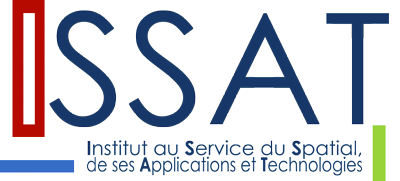aller au menu | aller au contenu


Space applications
training courses
Courses
Master Intelligence territoriale (mention Urbanisme et aménagement)
- Organisation : UFR SHS - Metz
(Université de Lorraine) - Way of training : Initial education - Sandwich/Apprenticeship training
- Language(s): French
- Place: Metz (French Regions: Grand-Est)
- Prepared diploma/grade/title: Master or DNM: French National Master Degree
- 1st required level : French baccalauréat + 3
- VAE (Validation of Acquired Experiences): Yes
- This training is Eligible for CPF
Course Details
Objectives : The objective of this training is to train in the planning and town planning professions through an approach that is both quantitative, prospective and participatory of the territory. Students are familiar with the diversity of new societal issues in the territories, as well as with decision-making in complex environments. Thanks to this training, students acquire both technical autonomy (mastery of tools and techniques), methodological (identification and invention of ad hoc methods depending on the context) and reflexive (adaptation potential). An international and cross-border perspective is integrated into the various courses, in order to develop a comparative approach to planning and town planning.
Degree Level (EU) : 7 - (EQC level or equivalent)
Acquired skills during the training : "Decision support": Knowing how to create monitoring indicators from upstream to downstream of a project, in order to guide the inventory, diagnosis, management and evaluation.
"Spatial representation": Knowing and mastering the methodological and technical solutions to produce a territorial representation adapted to a question and a context
"Personal and relational ecology at the service of professional efficiency": Know your strengths and weaknesses to position yourself in teamwork, and contribute effectively to project management.
"Territorial information": Knowing the existing territorial information (statistical, regulatory data, related to spatial representation, etc.), knowing how to manage, use and create it
“Participation”: Knowing how to manage a shared diagnosis, using participatory methods in person and remotely; identify the actors and measure their influence to shed light on a multi-level governance context
"Urban planning culture": Mastering the regulatory, budgetary, technical and organizational elements surrounding the development of an urban planning project
"Research": Knowing how to develop a research protocol, and situate it in the epistemological and theoretical panorama of urban planning research trends
"Innovation": Understanding the innovative processes, tools and management models
"Intercultural approach to planning": Identifying cultural differences between approaches to planning and land use between different countries
Duration and terms : 2 years
Partnerships with national organisations : ERPI - Équipe de Recherche sur les Processus Innovatifs, LOTERR - Centre de Recherche en Géographie
Dedicated web site : https://formations.univ-lorraine.fr/fr/master/2555-master-intelligence-territoriale-mention-urbanisme-et-amenagement.html
Applications
- Health and Societal challenges (E-health, tele-epidemiology, space medicine; Risk management, security, education, tourism...)
- Environment and Land Management (Environmental protection, agriculture, biodiversity, climate changes; Resources, land-use planning, infrastructures)
Space Technologies and Scientific Disciplines
- Data processing and analysis (Signal and image processing, big data, learning algorithms, artificial intelligence...)
- Geopositioning (Positioning, GNSS)
- Earth observation (Remote sensing, GIS, geomatics)